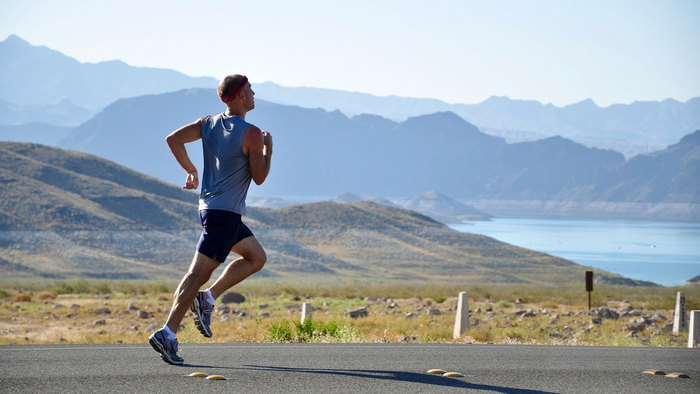Blog »
Run a fast 5km: Master the warm-up
Published 16 September 2019. Written by Chris Worfolk.

Want to run a fast 5km and set a new personal best? One key area you need to nail is the warm-up. If you are new to running, or even a long-time recreational runner, the idea of spending fifteen minutes running before a fast run might seem counterintuitive. In this article, I will explain the benefits.
Injury prevention
Warm-ups help us prevent injury. If we put cold muscles under a lot of strain, they are more likely to damage or tear. If we spend time warming up, we get the blood flowing around the body and get some heat into the muscles, thereby allowing us to push them harder without damaging them.
Priming the muscles
Having warm muscles is not just important for keeping them healthy. It also allows us to run faster. When we start from cold, our body can feel sluggish and lethargic. Once we get them activated, they will happily turn over quicker and push off harder. Essential if we want to nail the 5km distance.
Easing the mind
Setting a new 5km PB means pushing ourselves to the limit. This requires a level of confidence that we can do it. If we have not warmed up those muscles, we will encounter those sluggish feelings and will start to lose our belief that we can set a new personal best. Once the doubts creep in, we are more likely to slow down or not push ourselves quite as hard.
Of course, we are likely to encounter those feelings of lethargy during our warm-up, and so it is essential to remind ourselves that we are likely to encounter these feelings during the start of our run. We can use cognitive reappraisal to do this.
How to do a warm-up
Static stretches are not helpful here because our muscles are cold. Instead, we want to do a dynamic warm-up. This involves starting running at a lower intensity. Pick an effortless pace as almost any running pace will raise the heart rate and get the blood pumping. If you like, you can add some exaggerated movements such as heel flicks or high knees.
How long you want your warm-up to be is down to you, but I recommend 15 minutes. That may sound like it will use a lot of energy, but remember that the body has 90 minutes of glycogen supplies and if you are warming up at a leisurely pace, you will not be damaging your muscles or using up any of your anaerobic energy.
Conclusion
Warming up will allow you to run a faster 5km. Not only will it get the muscles ready for action but it will also get those feelings of sluggishness out of the way so that when you come to the start line of your timed 5km, you will not suffer from fewer nerves about being on a bad day.